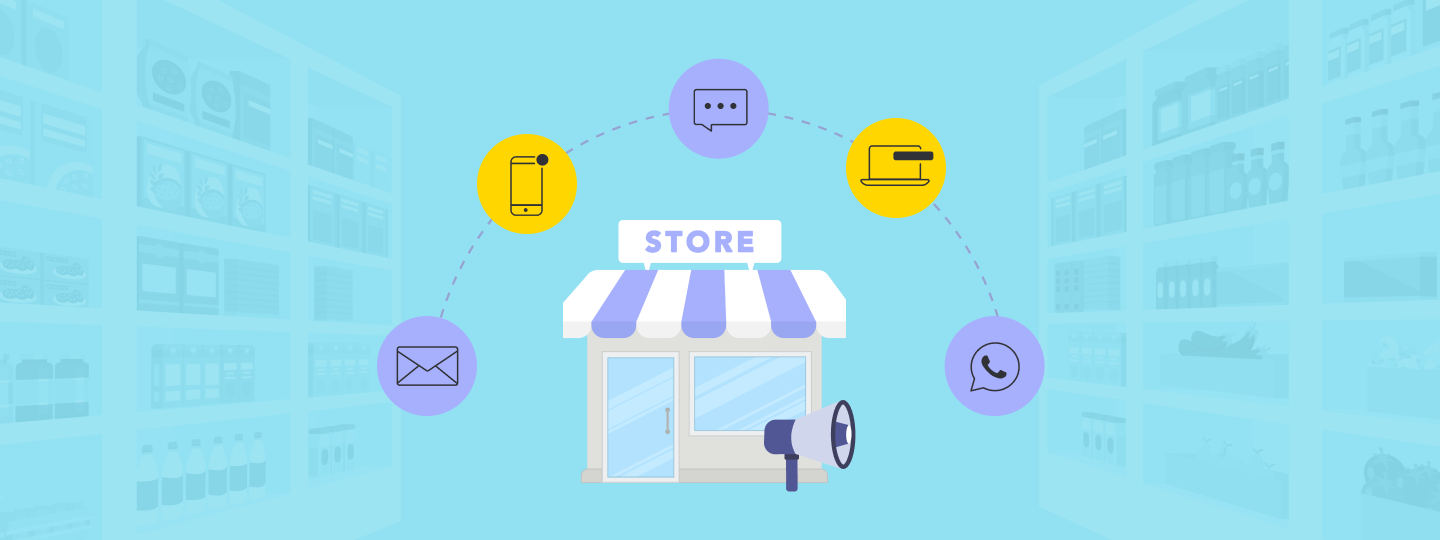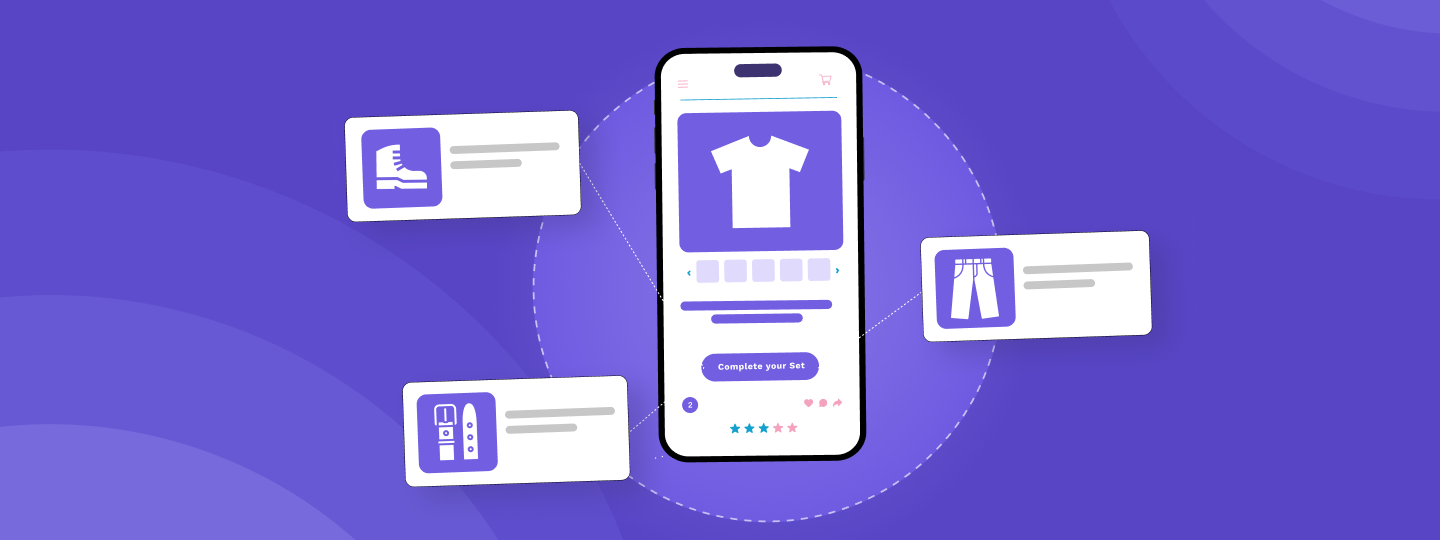In today’s ever-evolving world, marketing has transcended its traditional role of merely communicating what your hospitality business offers to a market. It now revolves around the intricate art of providing value to diverse customer segments.
This paradigm shift has made marketing in the hospitality industry more complex than it may seem at first glance.
In this blog, we’ll discuss ten common campaign mistakes in the hospitality industry and provide solutions to navigate this landscape successfully.
10 Campaign Mistakes in Hospitality (And Their Solutions)
Marketing is the cornerstone for hospitality businesses to survive and thrive. Many hospitality businesses struggle with their marketing efforts, making mistakes that can harm them. Whether it’s saying the wrong things or not keeping up with digital trends, these errors create issues. Knowing what to steer clear of helps businesses upgrade their marketing and make a mark in the bustling hospitality market.
So here is a list of 10 mistakes hospitality businesses make in their marketing campaigns, from which you can learn your lesson.
1. Not Being Present Where Your Audience Is
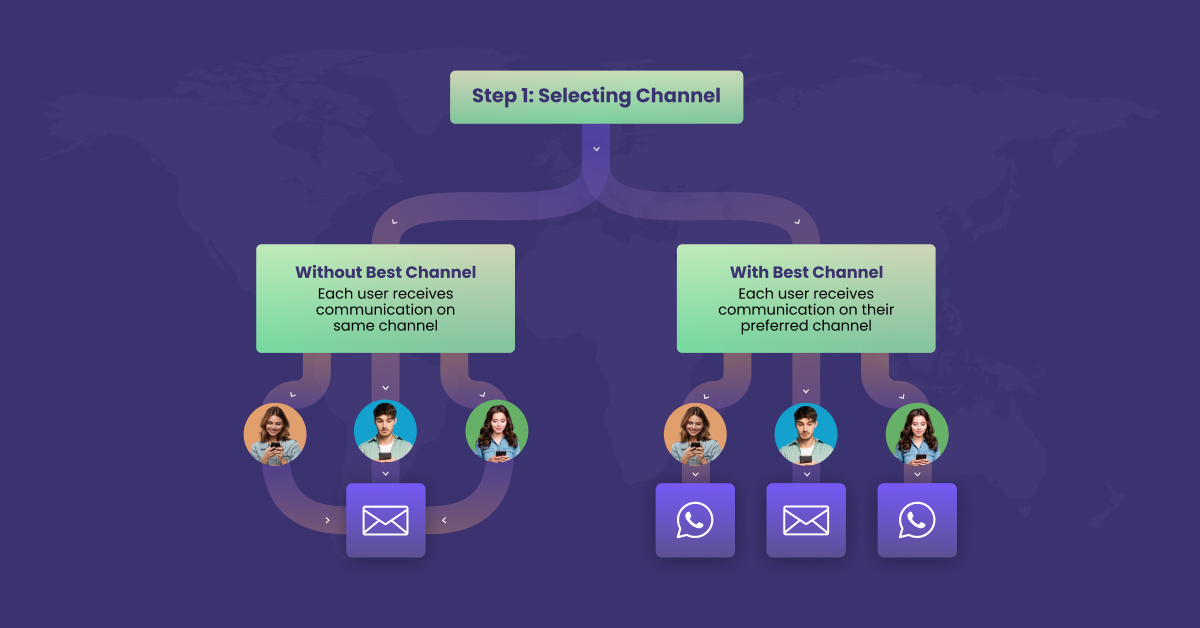
Most businesses make the mistake of sticking to a limited set of traditional marketing channels, such as print ads, brochures, and billboards. They assume that these methods alone are sufficient to reach their target audience. However, they overlook the fact that modern consumers engage with brands across a wide range of channels before making a purchase.
Solution: Implement Omnichannel Marketing
Hospitality businesses should embrace omnichannel marketing. This strategy involves establishing a consistent presence across various online and offline platforms, from social media and email marketing to mobile apps and in-person experiences.
One crucial aspect of this strategy is leveraging the best channel features to identify the most effective platforms for engaging with prospects, ultimately leading to better conversions and seamless user experiences.
With advanced analytics, hospitality businesses track customer interactions across channels, analyzing metrics like engagement, click-through, conversion rates, and feedback to pinpoint effective platforms for reaching their audience and driving desired actions.
Mr.Bilit, an Iran-based travel aggregator, harnessed WebEngage’s omnichannel marketing to achieve remarkable results. By utilizing Journey Designer, data analytics, and various communication channels like SMS, web push, and push notifications, MrBilit successfully increased user retention, correctly targeted search abandoners, and employed multiple channels simultaneously.
As a result, they witnessed a remarkable 19% increase in flight search abandonment retention, alongside substantial uplifts in bus and train search abandonment retention.
2. Not Deep Diving Into Customer Analytics
Many hospitality businesses fall into the trap of relying on outdated or generalized customer personas, assuming that once these profiles are created, they remain accurate. In today’s dynamic market, consumer needs and preferences are constantly evolving. Therefore, static personas are insufficient for effectively understanding and catering to your audience.
Solution: Utilize Real-Time Customer Segmentation
This means constantly analyzing and segmenting your audience based on their real-time behaviors, preferences, and interactions with your brand.
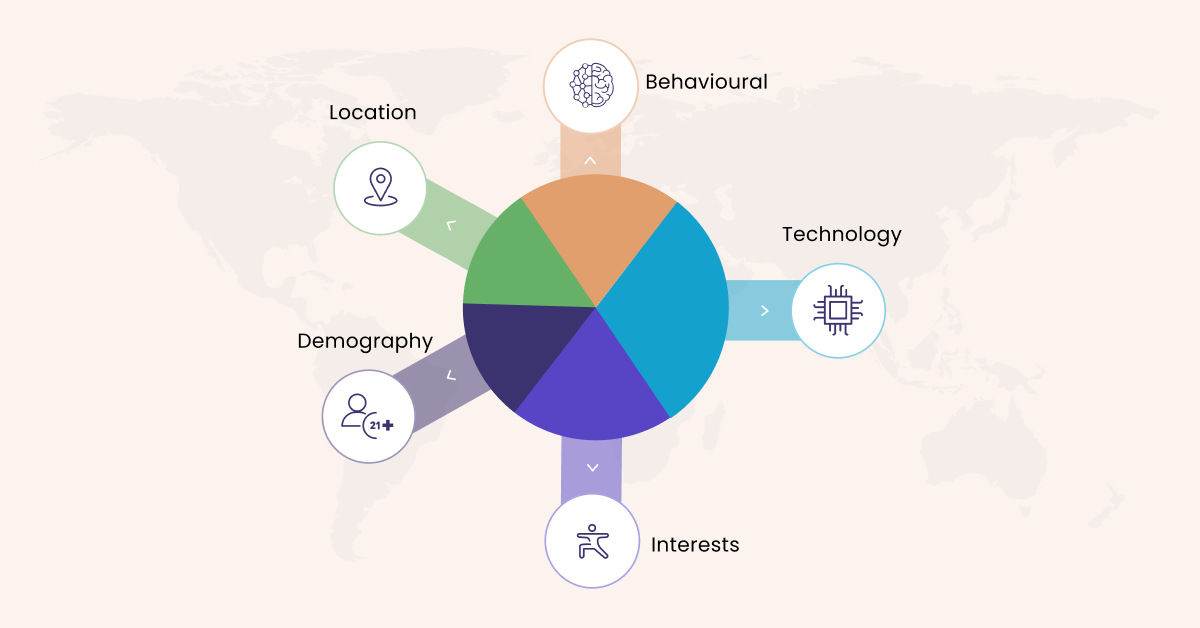
WebEngage offers robust customer segmentation capabilities, allowing you to create dynamic segments based on criteria like behavior, location, device, and more.
By leveraging real-time data and continuously updating your customer segments, you can stay on top of evolving consumer preferences and tailor your marketing strategies to provide highly personalized experiences.
3. Not Paying Attention to Customer Journeys
Another common mistake in the hospitality industry is assuming that customers follow a linear path when interacting with your brand. In reality, the modern consumer journey is far from straightforward, with various touchpoints and interactions taking place across different channels. Failing to understand and adapt to these complex journeys can result in missed opportunities and disengagement.
Solution: Implement Path Analytics and Customer Journey Design
Implement path analytics to gain a real, data-driven picture of how customers are interacting with your brand.
WebEngage’s path analytics capabilities help you identify gaps and opportunities in your customer journeys. Once you have a clearer understanding of these paths, you can use journey designer to create and optimize journeys that guide your audience smoothly from awareness to conversion.
By taking a more data-driven and dynamic approach to customer journey design, you can enhance the overall customer experience, increase engagement, and drive better results in the hospitality industry.
Yatra, the second-largest OTA in India, has been using customer journeys to create tailored experiences for its audience. This has helped the business increase its hotel bookings by 3.2%.
4. Not Focusing on Hyper-Personalization
Modern consumers have come to expect personalized content and offers tailored to their specific preferences. A recent statistic indicates that 80% of consumers are more likely to do business with a company if it offers personalized experiences. Ignoring this expectation can lead to missed opportunities and customer disengagement.
Solution: Implement Unified Customer Profiles
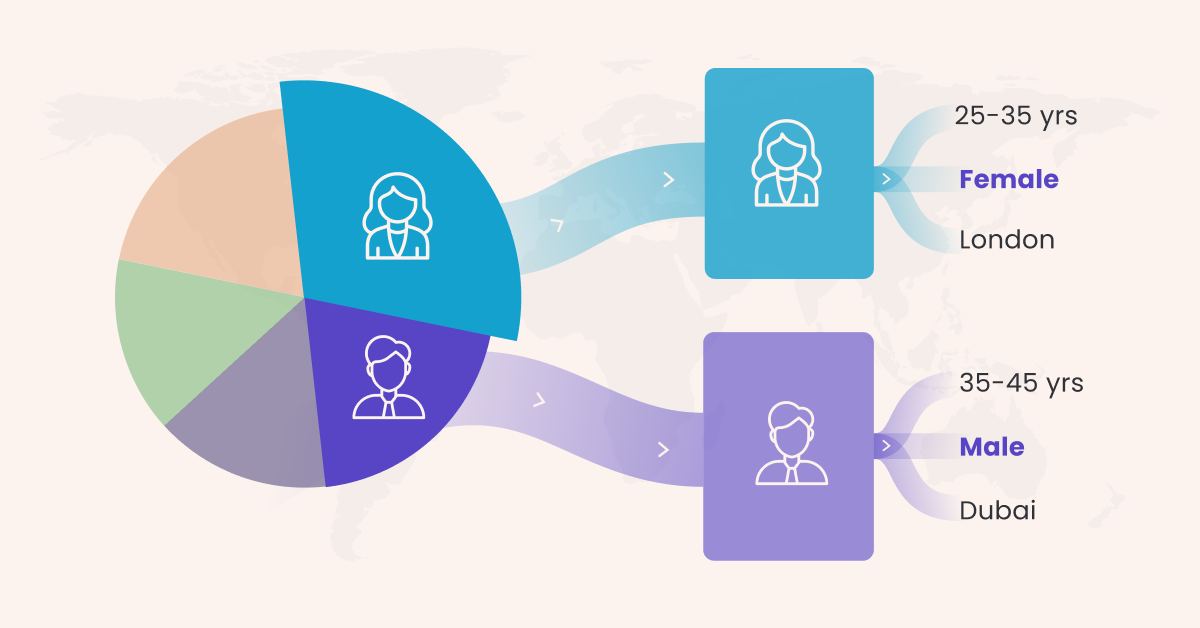
The solution is to establish unified customer profiles using WebEngage’s Customer Data Platform. These profiles consolidate data from various touchpoints to create a comprehensive view of each customer.
With this understanding, businesses can personalize marketing efforts on an individual basis.
With customer profiles, you can segment your audience more effectively, deliver highly personalized content, and enhance the overall customer experience, increasing engagement and loyalty.
Goibibo, the famous OTA brand in India, uses hyper-personalization in their email communication. This has helped them increase their conversions by 11%, leading to positive business outcomes.
5. Not Focusing on Customer Retention
Many hospitality businesses put all their efforts into acquiring new customers, often overlooking the significant cost associated with customer acquisition. Neglecting customer retention is a grave mistake. Loyal and active customers are a valuable asset, and failing to nurture these relationships can lead to lost revenue.
Solution: Implement Customer Retention Campaigns
Hospitality businesses should segment their loyal and active customers and create targeted campaigns to keep them engaged.
Implementing repeat booking initiatives is essential. Post-stay emails can be an effective tool for maintaining guest engagement. Also, implementing loyalty programs, offering perks, and personalized treatment can transform regular guests into VIPs.
Providing exclusive incentives tailored to individual preferences encourages repeat bookings and fosters customer loyalty.
Travel Triangle uses an omnichannel marketing strategy created using real-time customer segmentation and data analysis. This has helped the company hyper-personalize campaigns, leading to 20% more returning users.
6. Not Seeking Customer Feedback
Neglecting to seek customer feedback is akin to having a one-way communication channel with your guests. This mistake deprives you of valuable insights into customer satisfaction, preferences, and areas that require improvement. Without this information, it’s challenging to refine your marketing campaigns and enhance the guest experience.
Solution: Automate Feedback Campaigns
The solution is to automate campaigns designed to solicit customer feedback.
Use email, in-app notifications, or SMS to reach out to customers post-stay or post-service and ask for their input. Analyze the feedback received to identify strengths and weaknesses in your offerings.
By fine-tuning your services and marketing based on these insights, you can improve the overall guest experience, address specific pain points, and show customers that you value their opinions. This, in turn, can lead to increased satisfaction, loyalty, and positive word-of-mouth marketing.
7. Not Emphasizing on the Website
Your website is often the first point of contact with potential customers, and if it doesn’t provide a compelling and personalized experience, you risk losing valuable visitors. A poorly optimized website can result in higher bounce rates and missed conversion opportunities.
Solution: Implement Web Personalization
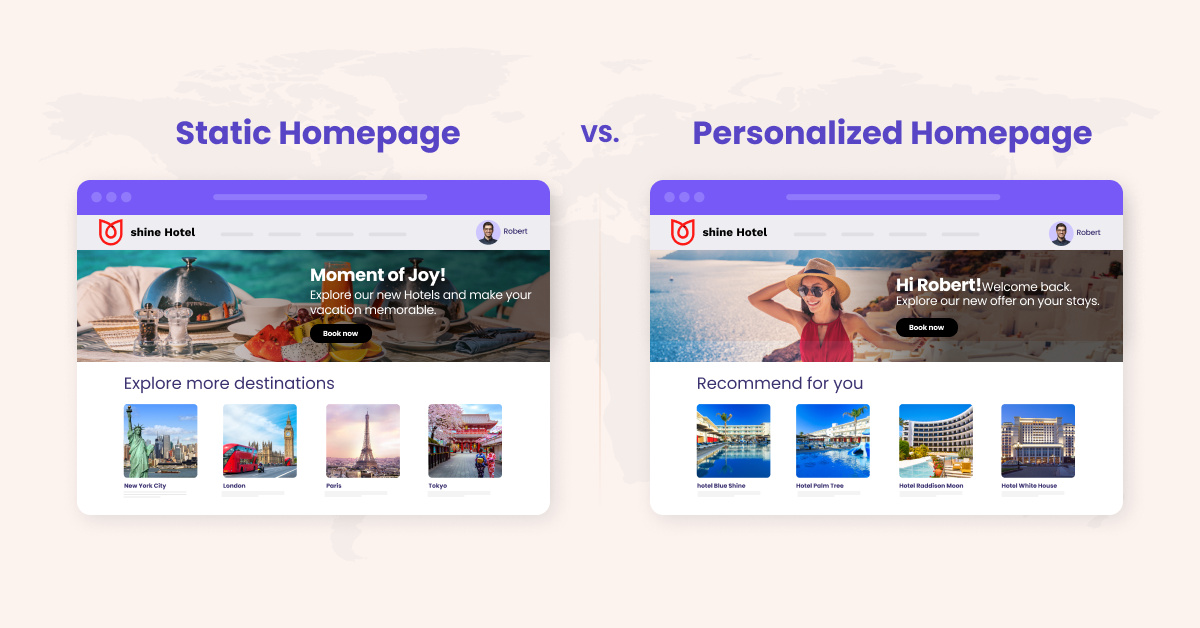
Web personalization allows you to tailor your website’s content, offers, and user experience to match individual visitors’ preferences and behaviors.
By creating a personalized journey for each website visitor, you can enhance engagement, encourage longer visits, and boost conversion rates. A personalized website experience can significantly improve the overall effectiveness of your online marketing campaigns.
8. Not Focusing on Empathy-Based Marketing
Another common mistake is the lack of emphasis on empathy-based marketing. Businesses often fail to understand how their customers feel while engaging with their brand. Without this understanding, it’s challenging to create marketing campaigns that resonate emotionally with your audience.
Solution: Utilize Customer Segments, Journey Insights, and Feedback
To rectify this, businesses should develop a deep understanding of their customers by using the insights provided by customer segments, journey analytics, and feedback.
By knowing your customers’ preferences and pain points, you can infuse empathy into your marketing campaigns. Craft messages and experiences that show you understand and care about their needs.
Empathy-based marketing creates a stronger emotional connection, fostering trust and loyalty.
9. Not Focusing on Referral Marketing
Many hospitality businesses rely solely on their promotional campaigns and neglect the power of word-of-mouth marketing. Customer referrals can be a highly effective way to reach new customers, but companies often do not actively encourage or facilitate this.
Solution: Automate Referral Marketing Campaigns
By automating campaigns that target specific customer segments and request referrals, you can harness the power of your satisfied customers to bring in new ones.
Incentivize your existing customers to refer friends and family by offering rewards or discounts. A well-executed referral marketing strategy can help you tap into the extensive networks of your satisfied customers, expanding your customer base.
10. Not Experimenting With Anything Other Than Discounts
Many hospitality businesses fall into the trap of offering only discounts as a marketing strategy. While discounts can be effective, relying solely on this approach can lead to a devaluation of your brand and may not always be the most creative or engaging way to attract and retain customers.
Solution: Diversify Marketing Strategies
Experiment with a variety of marketing strategies beyond discounts. Consider content marketing, storytelling, experiential marketing, or themed promotions.
Use your understanding of customer segments, their journeys, and feedback to craft innovative and engaging campaigns that capture your audience’s attention. By diversifying your marketing strategies, you can stand out in a crowded market and build a more robust and enduring brand presence.
Conclusion
To wrap up, avoiding these 10 common campaign mistakes is crucial for successful hospitality marketing. Adopting a data-driven approach is key, and with WebEngage, you can unlock real-time analytics and create personalized customer experiences.
Book a demo today to start boosting your revenue growth with a strong data culture!



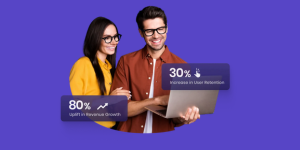
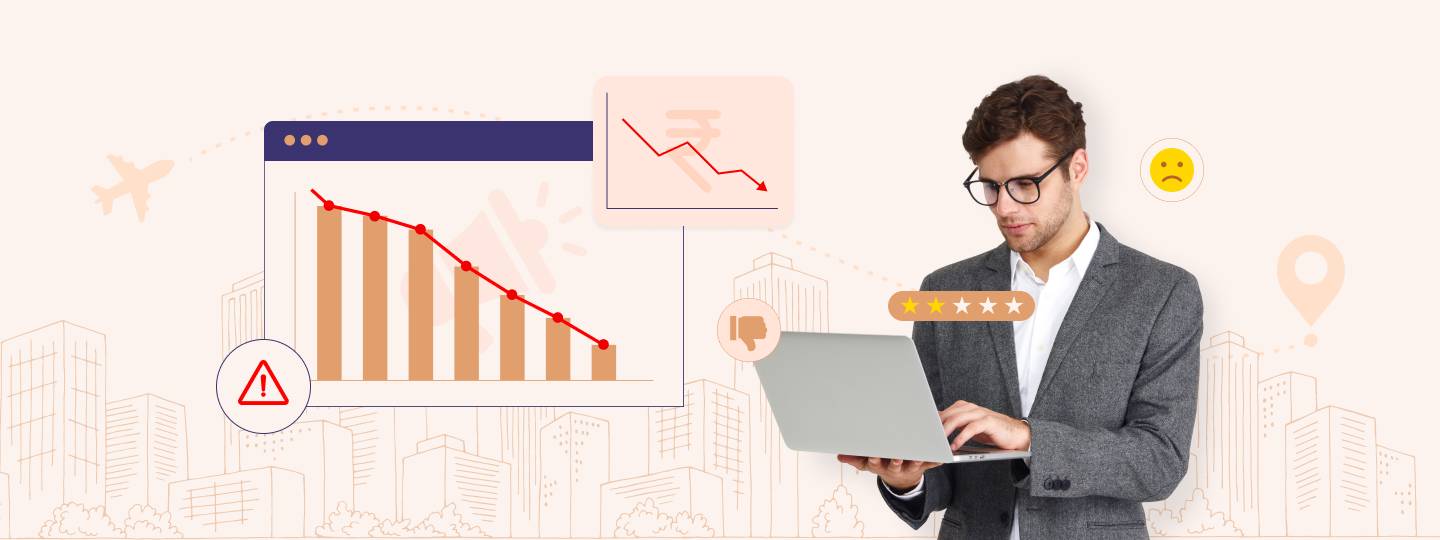


 Diksha Dwivedi
Diksha Dwivedi
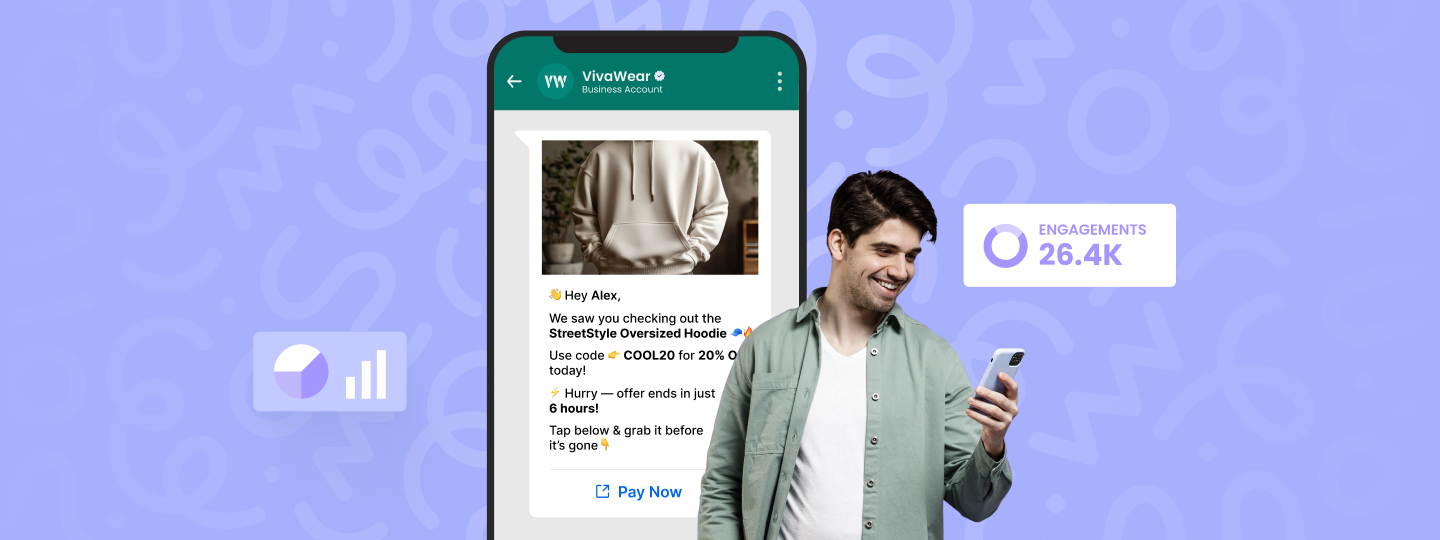
 Prakhya Nair
Prakhya Nair